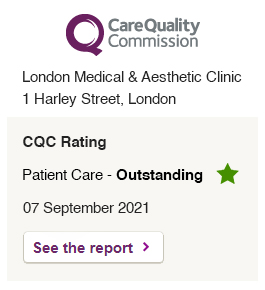You’ve woken up on the ward after the operation and, while the surgeons have done their best, you’re not feeling great.
You’ll probably be discharged fairly promptly (to free up that bed) with a prescription for painkillers and perhaps some antibiotics or physio. But otherwise you’ll be pretty much left to get on with it.
With 4.2 million operations a year carried out on the NHS alone, VICTORIA LAMBERT asked the experts – from surgeons and anaesthetists to therapists and dietitians – for their tips on how to boost recovery after surgery. Don’t go into theatre without reading these first…
EAT GREEN ALGAE
Take 6 to 10g of powdered sun chlorella (a type of green freshwater algae) every day after surgery, says Randall Merchant, professor of anatomy and neurobiology at Virginia Commonwealth university in the U.S. ‘Chlorella has been the subject of clinical trials which have found it useful in helping the body heal after trauma.’
It’s rich in nucleic acids, the building blocks needed for replacing injured and dead cells. Recent studies suggest it restores the normal functioning of genes which were turned off by cell injury. It can also help reduce inflammation, according to a paper presented to the Japan Society for Bioscience, Biotechnology, and Agrochemistry.
AVOID ASPRIN
‘To prevent excessive bleeding, avoid aspirin, ibuprofen or neurofen within the week before surgery,’ warns plastic surgeon Abel Mounir, of the Transform Cosmetic Surgery Group. ‘And don’t take any of these medications within the two-week period after surgery. You may, however, take paracetamol.’
SING
Anyone who’s had an abdominal injury, a hysterectomy for example, needs to get movement and strength back into the area to aid recovery. ‘Breathing well is the best way to do this – try regular breathing exercises or singing,’ says hector Wells, of the British Osteopathic Association.
SNACK
Your appetite might be diminished, particularly after bowel surgery and cancer operations, suggests Simon Cole, consultant surgeon at Dr Gray’s hospital, elgin. ‘It needs to be stimulated by eating favourites, and healthy eating rules can go out of the window. I tell patients to expect to “eat like a horse” when their appetite returns, although bear in mind that some foods, for instance a thick chocolate milkshake, might be unsuitable for anyone with a condition such as diabetes.’
Sian Porter, of the British Dietetic Association, says postop it’s perfectly legitimate to follow your body’s prompting and snack on food. ‘If you have a poor appetite, eat little and often.’
KEEP MOVING
It is not a good idea to be ‘wrapped up in cotton wool’, says Mr Cole. Many people avoid moving the area operated on because they’re afraid of doing damage,’ adds osteopath hector Wells.
‘If you’ve had a hip replacement, for example, your natural reaction will be to avoid putting weight on it while walking. By overcompensating this way, you can strain the healthy hip, which can cause new problems there and elsewhere.
‘After the surgeon has discharged you, engage in gentle, but constant, movement in the ten to 14 days after any operation. Gentle movement that does not cause pain is the best guide.’
Then, under the supervision of your physiotherapist, start to exercise – ‘swimming and cycling are very good and will drain fluids away from the area, which helps reduce scarring and encourages the new tissue along the natural movement lines,’ he says. ‘Get your surgeon’s permission before swimming.’
DRINK TEA
You can boost your immune system and help to minimise post-operative infections by drinking a cup of tea a day. Researchers at Brigham and Women’s hospital, in Boston,
U.S., found it contains an amino acid called L-theanine which might help strengthen the body’s immune system response when fighting off infection.
BUY A CHAIR
After you return home from some operations, such as a knee replacement, you won’t find it easy to get in and out of soft, low sofas,’ says Mike haytone, a consultant orthopaedic hand surgeon at Alexandra hospital, Cheadle, Cheshire. he suggests buying a higher chair before you go, in preparation.
Make sure you have the rest of your furniture ready: such as a bed on the ground floor
TAKE ARNICATaking the homeopathic remedy three days before the op and one week after can significantly reduce bruising, says Dr Ayham Al-Ayoubi, from the London Medical and Aesthetic Clinic. ‘The evidence is only anecdotal, but I’ve seen patients who had the same procedure, and the ones who’ve taken arnica have much less bruising.’
DON’T BE HEROIC‘Don’t wait until you are in agony before taking painkillers,’ says Dr Andy Wilson, an anaesthetist with nuffield health. ‘ Taking paracetemol when you need to makes you feel better and helps you mobilise quicker, meaning fewer post-op complications.’
WEAR YOUR OWN CLOTHESMental confusion, loss of memory, tearfulness, insomnia, anxiety and inability to do simple challenges such as completing a crossword are surprisingly common after surgery, reports the Royal College of Anaesthetists. This can occur from a week after the operation and can last for three months or more afterwards. This kind of confusion is particularly common in the elderly with up to half affected. The use of familiar objects such as your own pillows and clothes helps; clocks and calendars are useful, too.
TAKE VITAMIN BThis helps speed up recovery, says Dr Ayham Al-Ayoubi. Look for a Vitamin B complex as it has all types of Vitamin B in one tablet. ‘But avoid A or e as they can increase bruising.’
EAT PRUNES
‘You may be sent home with morphine or codeine-based painkillers which can cause constipation and you really don’t want stomach pain on top of everything else,’ says surgeon Mike haytone. eat lots of fibre before and afterwards.
To view Dr Ayoubi in the media click here.





